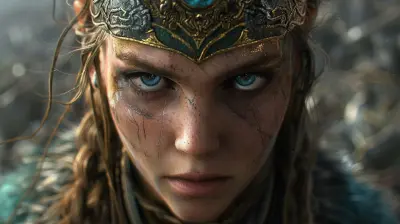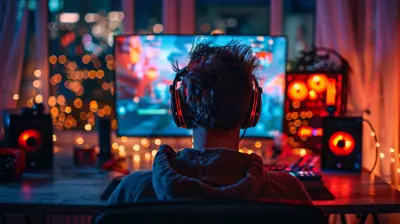Cyberpunk 2077: The Neon Darkness Behind Night City's Power Struggles
11 November 2025
Cyberpunk 2077 isn’t just a futuristic playground filled with chrome limbs and neon-lit back alleys—it’s a gritty, emotionally charged story about power, control, and survival. Behind every cybernetic enhancement and high-tech gadget lies a darker narrative: the constant power struggles that define Night City. And honestly? That’s where the game shines.
Let’s peel back the flashing billboards and synthetic skin to uncover the real heartbeat of Cyberpunk 2077—its brutal, political underbelly where corporations, gangs, and outcasts clash in an endless war for dominance.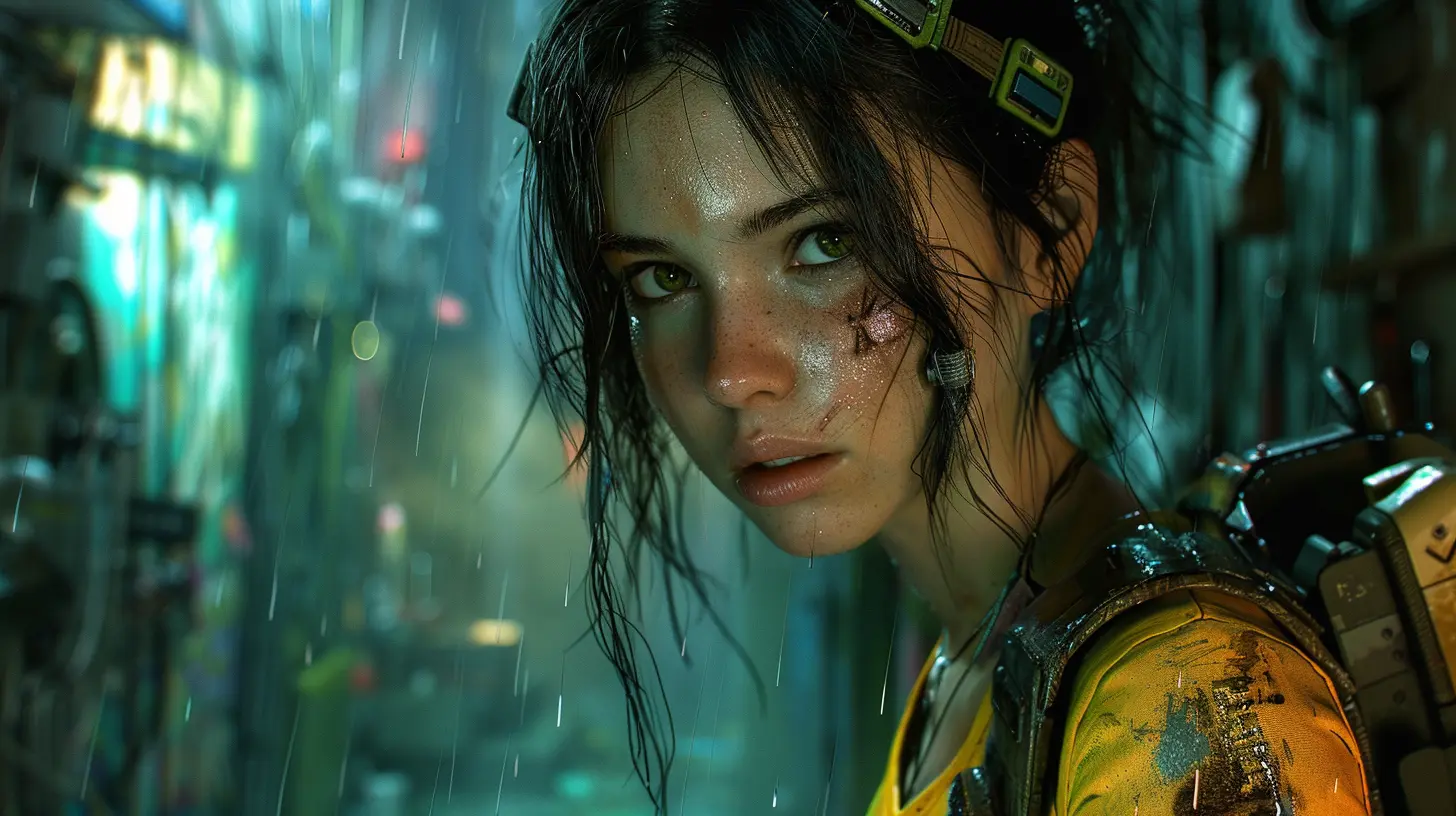
Welcome to Night City: A Dystopia with a Pulse
Night City is more than just a setting—it’s a living, breathing beast. Think of it as a neon-dripping spider web, crafted with precision yet teeming with chaos. It’s every cyberpunk lover’s dream and nightmare rolled into one.At first glance, it’s easy to be swept away by the towering mega-buildings, flying cars, and the decadent glow of holograms lighting up the night sky. But beneath the garish surface lies a world fueled by corruption, greed, and lawlessness. The deeper you dig, the more you realize—you’re not the hero here. No one is.
Power is the currency, and everyone wants a bigger slice of the pie.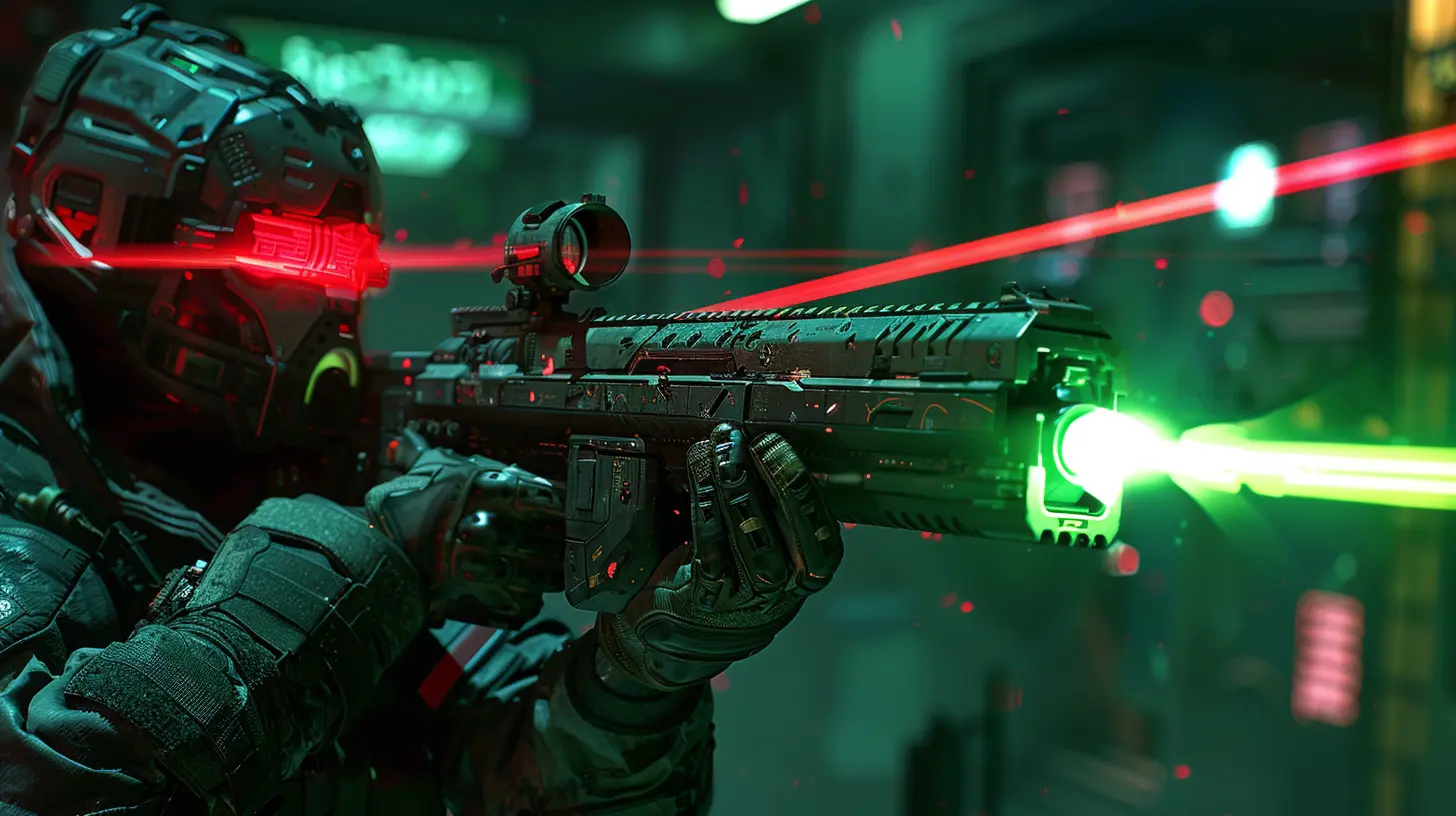
Corporate Overlords: The Real Rulers of the Neon Jungle
In Cyberpunk 2077, forget governments—corporations run the show. Arasaka, Militech, Kang Tao… these aren’t just names on flashy logos. They are militarized corporations with private armies, political influence, and zero regard for human life unless it improves the bottom line.Need an example? Arasaka is practically the boogeyman of Night City—old money mixed with advanced tech, espionage, and family feuds. Their involvement with the Relic chip (you know, the one stuck in your head) pretty much kickstarts the entire game’s chaos.
What makes it more terrifying is how real it feels. Replace Arasaka with Apple or Amazon in 2077 and boom—you’ve got a disturbingly realistic future. The game doesn’t just ask, “What if corporations controlled everything?”—it shows you exactly how messed up that would be.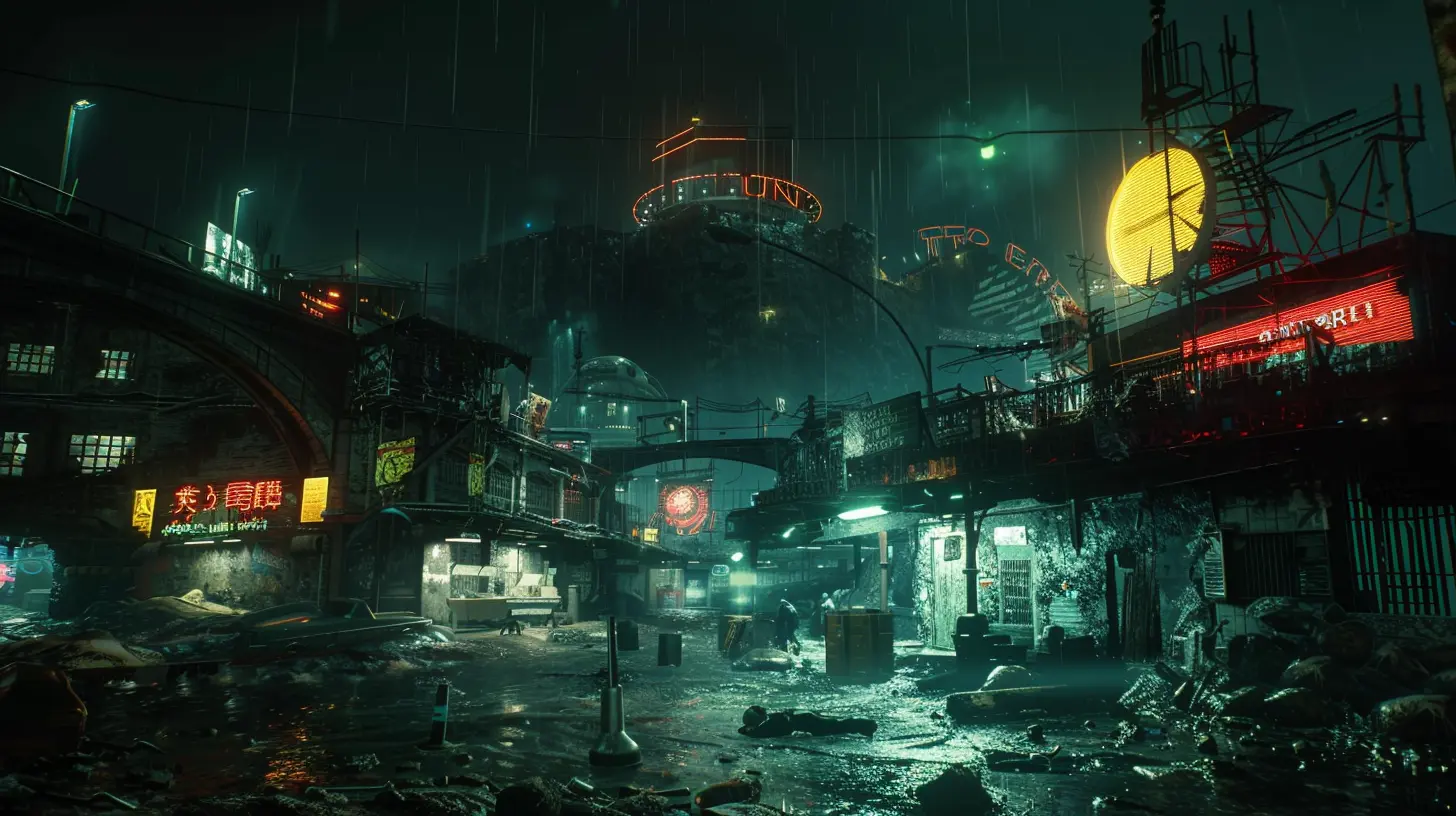
Gangs of Night City: Street-Level Politics and Turf Wars
While the corpos play chess with skyscrapers and satellites, the streets of Night City are a whole other battlefield. Gangs like Maelstrom, the Tyger Claws, and the 6th Street gang bring raw, everyday violence to the mix.Each gang has a distinct identity, culture, and set of values—twisted though they may be. Maelstrom is all about cybernetic overload and anarchic chaos, practically turning members into machines with no empathy. On the flip side, the Valentinos preach loyalty and tradition, wrapped up in golden guns and religious iconography.
And then there’s V—the player’s avatar—thrust right into the middle of it all. Working with or against these groups pulls you deep into Night City’s urban bloodlines, where every choice reshapes your path and relationships.
It’s not just about shootouts and flashy upgrades. These gangs are players in Night City’s power game, controlling neighborhoods, economies, and, sometimes, entire story arcs.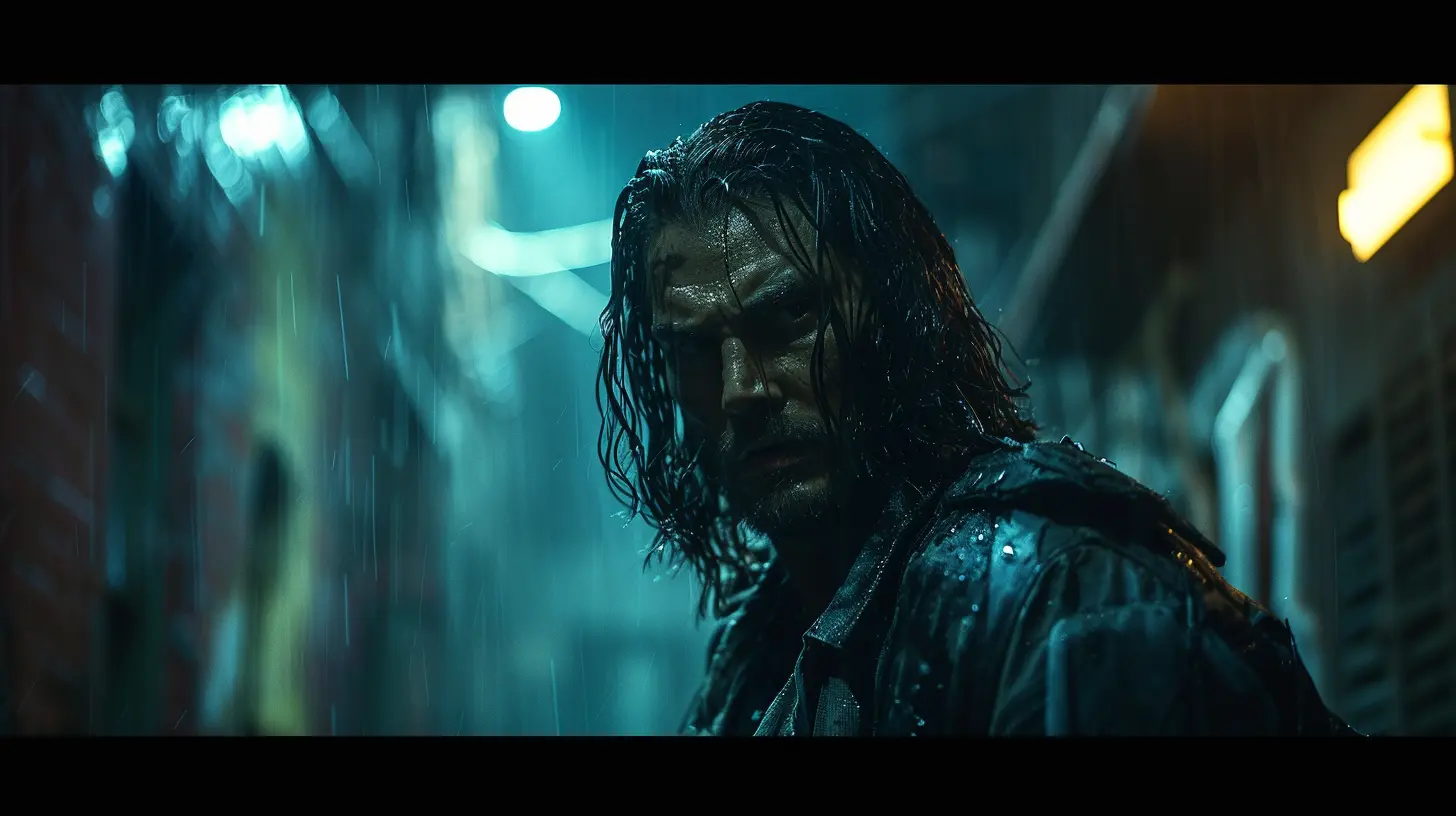
Nomads, NetRunners, and Outcasts: The Forgotten Power Players
Not all struggles take place in the heart of the city. Cyberpunk 2077 does a fantastic job of showing that even those outside Night City’s walls have a stake in the game.Take the Nomads, for example. They live free, roaming the Badlands, rejecting the corporate chokehold. But they’re not powerless. Their deep ties to family and freedom make them one of the game’s most nuanced factions. Their distrust of the city’s corruption also adds a beautiful layer to the narrative—almost like looking at the chaos from the outside in.
NetRunners, like the brilliant and mad T-Bug or the terrifying Voodoo Boys, operate on another level entirely. They wage war in the digital realm, diving into data fortresses, bending firewalls like cardboard. In a world where information is often deadlier than bullets, their influence is enormous—just hidden in cables and code.
The Relic and Johnny Silverhand: A Power Struggle Inside Your Head
Here’s where things really get wild.The power struggles in Cyberpunk 2077 aren’t just external. One of the game’s most powerful dynamics happens inside V’s brain. Thanks to a botched heist and a black-market prototype chip—the Relic—you end up with the digital ghost of rockstar-turned-terrorist Johnny Silverhand (played by a delightfully edgy Keanu Reeves) stuck in your head.
The push and pull between V and Johnny adds a psychological layer to the power theme. Johnny wants to destroy Arasaka, V wants to survive. Their goals clash and sometimes align, creating internal tension that's just as gripping as the gunfights.
Plus, it forces you, the player, to question your own agency. Are you making choices… or is Johnny nudging you forward? Who’s really in control?
The Illusion of Choice: Are You Free in Night City?
Here’s a hard pill to swallow: freedom in Cyberpunk 2077 is mostly smoke and mirrors.Sure, the game gives you multiple paths, dialogue options, and endings. But the deeper message is haunting—no matter what you choose, you're operating within a rotten system. Your choices affect how the story plays out, but rarely shake the structures that hold Night City in place. The city doesn’t need a hero. It devours them.
This isn’t a bad design flaw—it’s an intentional narrative decision. The game shows you time and time again: power isn’t only about having the biggest gun or choicest chrome. It’s about information, control, manipulation.
Even when you rise in the ranks and earn respect (or fear), you’re still a cog in a much larger, merciless machine.
The Real Darkness: Humanity Lost in the Quest for Power
As fun as it is to hack a turret or leap from a rooftop with mantis blades, Cyberpunk 2077 constantly asks a sobering question: what do we lose chasing power?Characters like Evelyn Parker, Jackie Welles, and Takemura all fall victim to the power plays they become entangled in. Some are used and discarded. Others burn out chasing dreams the city never planned to let them have.
It isn't just about high-tech upgrades and neon bling. Every augmentation costs something. Humanity. Sanity. Identity. The game asks—not so subtly—"When everyone’s replaceable, what makes someone human?"
It’s haunting. And it sticks with you.
The City Won’t Change, But You Might
One of the most impactful takeaways from Cyberpunk 2077 is the idea that while Night City remains this monolithic, carnivorous force—you as V can change. Maybe not the world, but yourself.Whether you choose to rebel, conform, escape, or sacrifice, each ending reflects that internal growth (or descent). While it might feel like a drop in the bucket, it’s your drop.
You can’t fix Night City. You can’t walk away unscarred. But you can leave your mark, no matter how small.
Final Thoughts: Why The Power Struggles in Cyberpunk 2077 Matter
Cyberpunk 2077 is messy. It’s brilliant. It's sometimes buggy (okay, a lot less now). But more than anything else, it’s honest—about power, corruption, and the human cost behind technology.Playing this game isn't just about flashy weapons and cool rides. It’s about navigating a world where everyone is climbing over someone else, where the lines between right and wrong are blurred by bright neon lights and corporate slogans.
Power in Night City isn’t about winning. It’s about surviving long enough to matter. And that? That’s more compelling than any boss fight.
all images in this post were generated using AI tools
Category:
Lore And StorylinesAuthor:

Kaitlyn Pace
Discussion
rate this article
1 comments
Courtney Newman
An insightful exploration of how power dynamics shape Night City’s narrative—essential reading for Cyberpunk fans!
November 11, 2025 at 5:05 PM

Kaitlyn Pace
Thank you for your kind words! I'm glad you found the exploration of power dynamics in Night City insightful.
